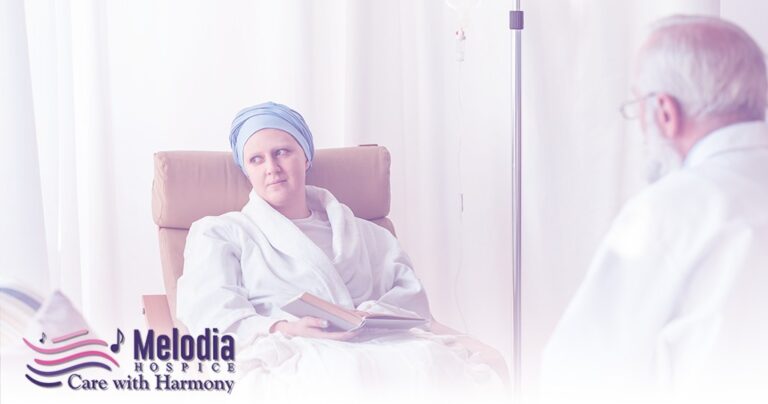Palliative Care At Home For Cancer Patient In Alameda City, California
Do you or someone you care about suffer from a life-threatening condition such as cancer, heart failure, lung disease or kidney disease? If this is the case, you may be tired of making unnecessary trips to the emergency department and spending unnecessary time in the hospital to manage pain, shortness of breath or other symptoms. Palliative care can assist you in remaining in your home as long as possible.
Palliative care is care that focuses on minimizing the severity of disease symptoms rather than trying to stop, delay or reverse the disease’s progression or provide a cure. Palliative care aims to improve the quality of life with extra care measures for those dealing with life-threatening illnesses by preventing and controlling pain. Not to be confused with hospice, which provides pain and symptom management to patients nearing the end of their lives.
When it comes to palliative care, it may appear to offer a wide range of services but the treatment’s goals are very specific:
- Control of pain and sorrow
- Medication to alleviate discomfort medication to address other troubling symptoms
- Care for the mind and spirit
- The patient’s family’s daily-life support system
In palliative care, cancer pain is one of the most prevalent and difficult symptoms to deal with. Pain was reported to be moderate to severe in 51.9% of patients with advanced disease and 38% of all patients, despite breakthroughs in cancer treatment and pain management in palliative care. It can have an impact on quality of life, interfere with everyday activities, even affect basic functions like mobility and sleep. Uncontrolled pain often leads to unnecessary suffering. Patients’ ability to cope with disease is lowered when they are suffering from uncontrolled pain, which can also interrupt ongoing anti-cancer treatment. Fear and concern among doctors and patients are obstacles to effective management of cancer pain. Clinicians may be hesitant to raise opioid dosages because of myths about opioids causing respiratory depression, addiction or shortened life expectancy. This is not always the case.
There must be a thorough evaluation and understanding of the patient’s discomfort. You should think about if the pain is caused by the disease or by treatment consequences such as an intervention or a procedure or if it has a different source and if it fits into any of the recognized cancer pain syndromes.
Patients With Cancer May Find That Palliative Treatment Is Beneficial

It is the goal of palliative care to alleviate a patient’s “whole pain,” which is a concept of multi-dimensional pain that includes not only physical pain but also anguish from various highly emotional, social, cultural and existential concerns that accompany a cancer diagnosis. In addition, palliative care can alleviate a variety of physical symptoms such as nausea, exhaustion, shortness of breath, sleeplessness and a variety of other symptoms. Furthermore, pain management in palliative care can assist patients and their caregivers in coping with mental stressors such as sadness, anxiety, sorrow and financial concerns while undergoing cancer treatment and its aftermath, among other things.
Lastly, most palliative care teams take a multi-disciplinary approach to patient care, collaborating with other services like nutrition and physical therapy where deemed necessary. They also collaborate closely with social workers and therapists in order to provide an additional layer of spiritual and emotional support to cancer patients and their families throughout the course of their treatment.
Acknowledging, Monitoring And Documenting Cancer Patients' Pain

It is a component of the vast majority of medical diseases that physicians encounter on a daily basis, whether acute or chronic. Furthermore, it is crucial to remember that pain can be a significant contributor to the morbidity and mortality associated with many medical diseases and that it is frequently “related with increasing decline in functioning and other problems such as weight loss.” As a result, it is evident that pain is an important aspect to consider in the complete care of patients across all domains of medicine, particularly in palliative care and pain management at the end of life.
When physicians’ primary goal is to “apply to the benefit of the sick whatever means are required,” it seems reasonable that they would want to make use of all available methods to alleviate this common and problematic aspect of patient suffering. While the necessity for sufficient pain and pain-associated morbidity treatment is obvious, the needs of patients throughout the spectrum of healthcare are not being satisfied. However, even though “moderate to severe chronic pain [is experienced by at least 70% of patients with advanced cancer], undertreatment of cancer pain has been estimated to be as high as 40%”. Furthermore, “studies reveal poor control of post-operative and trauma pain as well as chronic & non-cancer pain”, in addition to cancer. So, there is a challenge surrounding pain recognition and management that has to be addressed and resolved in order to better serve the enormous number of patients who suffer from pain on an acute or chronic basis, as well as the general public.
Palliative Care Or Cancer Patients At Home

The ability to remain at home for as long as possible, even till the end of life, is extremely important for some persons with advanced cancer and their loved ones. Being cared for at home can be really soothing but it also means that loved ones who are caregivers have an increased number of obligations. Discuss with your healthcare team what it means for you to be able to remain at home so that everyone is on the same page about what they need to do.
Depending on your circumstances, you may be able to arrange for palliative care services in your home. In-home palliative care professionals such as nurses, health aides, respite workers and volunteers can be a part of your care team.
It is possible that you will need to make improvements in order to make your home more comfortable and safer. This can be as basic as removing a rug that could cause someone to trip over it or as complex as installing wheelchair ramps or hiring a hospital-style bed for a few hundred dollars. If you require assistance in determining what changes you need to make, speak with a social worker or another member of the healthcare team for assistance for pain management in hospice and palliative care.
Even with the proper assistance in place, it is possible that a person with advanced cancer will reach a point where it is no longer possible for them to remain at home and pain management in hospice and palliative care is required. Patient may require medical attention and support that your family members are unable to supply. It is critical to note that being admitted to a hospice or palliative care center does not imply a failure on the part of the patient or family. While receiving competent care from the healthcare team, family members can still show their love and support to someone who is in a hospice or hospital.
Palliative Care Facilities

The provision of palliative care and assistance is available at several hospital settings. Pain or palliative care clinics, palliative care units in hospitals, long-term care homes and hospices are examples of such facilities.
A palliative care clinic is a facility where people can receive pain and symptom treatment, as well as emotional, practical support and pain control in palliative care from trained professionals. It is designed for outpatients, which means you will not be required to sleep or stay overnight.
Patients can receive specialized palliative care in a hospital setting when they are admitted to a palliative care unit. It is intended for inpatients, which means you will be required to stay and sleep there. In addition to providing care in the final months or weeks of life, some acute palliative care centers are designed to give short-term treatment to patients suffering from acute symptoms.
A hospice facility or program provides comfort and support for people who are nearing the end of their lives as well as their relatives. Hospice volunteers can give support in the home and residential hospices are facilities where individuals with cancer can be cared for at the end of their lives in an environment that is similar to home.
Hospices and palliative care units have strict admissions requirements and there are frequently long waiting lists for admittance. It’s a good idea to start filling out your application as soon as possible, with the assistance of your healthcare team. Even if you intend to care for yourself at home, you may want to consider applying to a palliative care facility as a backup plan in case your situation changes.
A long-term care facility is a place where people can live if they are unable to care for themselves due to medical or personal reasons and require assistance. Long-term care facilities include nursing homes and assisted living facilities, among other things.
Palliative Care Can Assist You In Remaining In The Comfort Of Your Own Home

Palliative care is a type of medical care that is provided to persons who are suffering from terrible illnesses. It will alleviate your discomfort and other symptoms. It will assist you in better understanding your ailment as well as your treatment alternatives. It will assist you and your family in coping with the challenges of living with a serious disease on a day-to-day basis.
There are numerous palliative care services available to those who may not require hospitalization. Perhaps you can obtain support at home or perhaps you can go to your local doctor’s office or go to your cancer center to seek help. Some hospitals provide palliative care on an outpatient basis. You can receive pain management in palliative care at the same time as you receive treatment for your disease and you can receive it at any stage of your illness.
This additional layer of help at home can make a significant impact in your overall quality of life. You or a loved one will be more comfortable if you or they have access to expert pain and symptom control. A nurse advice hotline that is available 24 hours a day, seven days a week could help you avoid those unwelcome journeys to the emergency room. In addition, you might be able to obtain nursing assistance or meal delivery services nearby.
It is likely that you will have a palliative care team that includes a doctor, nurse and social worker. All of them will be experts in palliative care and hospice. They will take as much time as is necessary to fully comprehend your position and determine how they can best assist you.
You can reach us at any time by contacting us through our 24/7 online customer support chat or by calling 1-888 635-6347 (MELODI-7) & Melodia Care Hospice.
